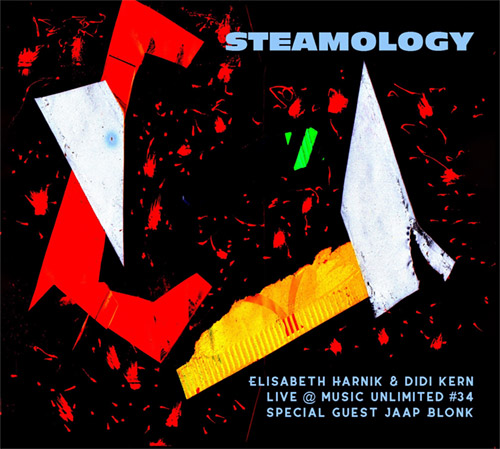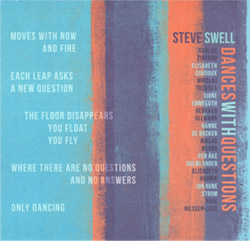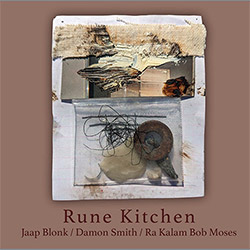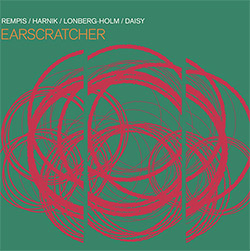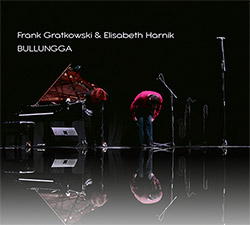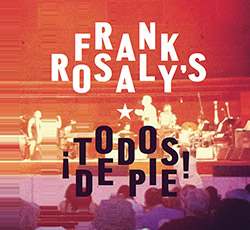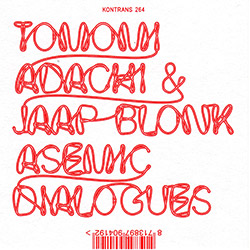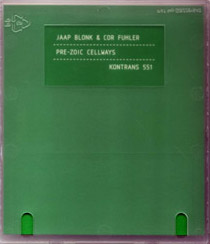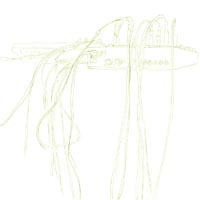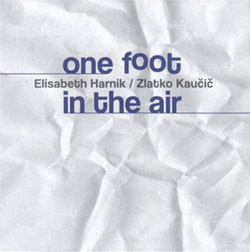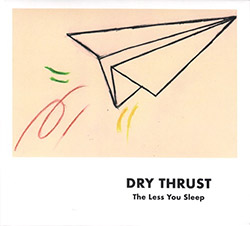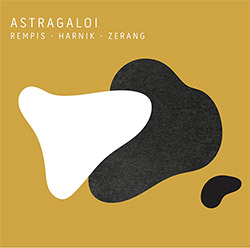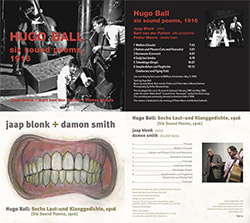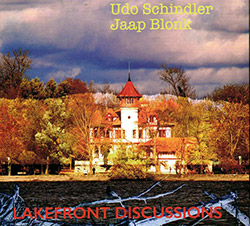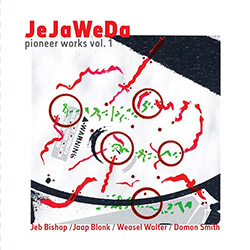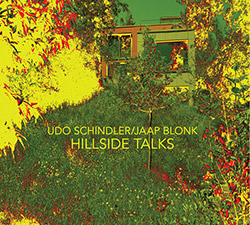
Joyfully assertive and somewhat twisted, the first of three improvisations on this live album at Wels Unlimited 2020 is the duo of Austrian pianist Elisabeth Harnik and drummer Didi Kern, starting at high speed then shifting to unusual approaches in a quirky dialog, made quirkier with Jaap Blonk adding wonderfully nonsensical vocalizations on the last two pieces.
In Stock
Quantity in Basket: None
Log In to use our Wish List
Shipping Weight: 2.00 units
Sample The Album:
Elisabeth Harnik-piano
Didi Kern-drums
Jaap Blonk-voice
Click an artist name above to see in-stock items for that artist.
UPC: 5052571097724
Label: Klanggalerie
Catalog ID: GG380
Squidco Product Code: 31720
Format: CD
Condition: New
Released: 2022
Country: Austria
Packaging: Digipack
Recorded live at Schlachthof, in Wels, Austria, on November 8th, 2020, by Christina Bauer.
"This recording is a registration of a duo performance by Elisabeth Harnik on piano and Didi Kern on drums and percussion. Three pieces: one extended improvisation lasting almost half an hour and two shorter ones. In the last minute of part II and for the whole of part III, the duo is joined by Jaap Blonk. All three have made their mark in the global improvisation world. Harnik and Kern are mainstays in the Viennese (impro) music scene. Kern is also active in rock and electronic music. Jaap Blonk is a voice artist who also uses electronics.
The first five minutes sound like a steam engine trying to get its groove back. And when it does, block chords go up in accelerando until the engine stops. No steam is available, and there's a meditative tension (a contradiction in terminus, of course, but the relative stillness of the piano in full atonal mode is interjected with percussive tings and tangs, spellbinding rushes, shakes with a tambourine and sticks rubbed against the cymbal to create high-pitched tones. This interlude is mesmerizing and a stark contrast with the preceding six minutes. Harnik also attacks the bare strings inside the grand piano throughout the piece for added effect. Both musicians are conscious of what each is doing. At around the twelve-minute mark, the engine gets steamed up again with the help of a steady (well, almost steady) beat by Kern. At the end of the piece, it sounds like Harnik is bowing the strings inside the piano. Part II starts with a long drum roll. The piano adds agitated figures. A start-stop play begins. This agitation is kept throughout the piece. Jaap Blonk adds some more agitation to his voice.Part III starts with Blonk talking to himself and making various noises. Harnik joins with a disjointed bassline and adds vamped chords in the right hand. Blonk adds electronic blips, perhaps using his voice as the source. Later on, the three of them let the music and noise become quiet.
This performance (all 47 minutes) is a great way to get familiar with three musicians who have mastered their instruments and have a good time making music. The music is not totally out there (at least not to these ears) and has a really nice flow. Mind you, this isn't lounge music either."-MDS, Vital Weekly
"Elisabeth Harnik, an Austrian based pianist and composer has created a multi-faceted body of work by blurring genre boundaries through various collaborations in the field of improvised music, interdisciplinary projects and contemporary compositional works. She studied classical piano and later - with Beat Furrer - composition at the University of Music and Performing Arts, Graz. As an improviser she works within an electro-acoustic inspired sound-world, using specific preparations and extended techniques while pushing the limitations of the piano. Amongst others she has collaborated with Frank Gratkowski, Dave Rempis and Michael Zerang, Joelle Leandre and Ken Vandermark.
Didi Kern is an Austrian drummer who is best known for his work with Bul But, Fuckhead or Glutamat. He is equally at home in the rock scene and in the free improvisation scene. He has a duo with keyboarder Philip Quehenberger, plays drums with KGB and has performed with jazz greats like Peter Brotzmann, Mats Gustafson, Weasel Walter, Saadet Turkoz or Ken Vandermark.
Jaap Blonk is a Dutch avant-garde composer and performance artist. He is primarily self-taught both as a sound artist and as a visual/stage performer. He studied physics, mathematics, and musicology for a time, but did not complete his studies. One of his early influences was Kurt Schwitters, whose Ursonate he first heard in 1979; he memorized the entire work, and it became one of the cornerstones of his repertory.
For Wels Unlimited 2020, the trio got together for a live stream during one of the Covid lockdowns. This album is a recording of that show."-Klanggalerie
Get additional information at Vital Weekly
Artist Biographies
• Show Bio for Elisabeth Harnik "Elisabeth Harnik, free-lance composer and pianist, was born 1970 in Graz and lives in Gams (County of Styria/Austria). She studied classical piano and later - with Beat Furrer - composition at what is now the Univer sity of Music and Performing Arts, Graz. The "repertoire" and it's extensions in composition and improvisation is her central focus. Harnik works within an electro-acoustic inspired sound-world, using unique preparations and extended techniques. Performances include: Easterfestival Graz 2002, Hörfest Graz 2003/04/05, Styrian Chamber Music Festival 2003, Klangmühle Orth an der Donau 2005, Munich Ope ra Festival 2006, Mozart- Year Vienna 2006, Paul Hofhaimer Musiktage 2006, Composers' Forum Mittersill 2008, Haydn Year 2009, Festival 4020 Linz 2009, Sou ndings Festival London 2010, Opera Graz, Musikprotokoll/Steirischer Herbst 2011, E_MAY Festival Vienna 2011/2012, Klangspuren Schwaz 2012, Transart Festiv al Bozen 2012, Wien Modern 2013, Estonian Harpsichord Society Festival 2014, A udio ArtFestival Pula 2014 a.o. She has worked with renowned artists and ensembles such as the Ensemble Zeitfluss Graz, the Ensemble 09 Linz, the Ensemble MusikFabri kSüd, the Radio Symphony Orchestra Vienna, the Klangforum Vienna, the Ensemb le "die reihe" Vienna, the Ensemble Kontrapunkte Vienna, the ensemble Reconsil Vienna, the Ensemble PHACE Vienna, the Ensemble Platypus Vienna, the Hay dn-Trio-Eisenstadt, the Trio AMOS Vienna, the Trio EIS Vienna, the Thürmchen Ens emble Cologne, the Fidelio Trio London, the Cantus Ensemble Zagreb, the Ensemble mise-en New York and various national and international soloists. She received a great number of rewards and prizes, most recently she was Artist in Residence at the OMI International Arts Center New York 2010 and Composer in Residence 2013 at the IZZM in Ossiach/Austria. In addition to her work as composer she appears as improvisator at various national and international festivals such as the V:NM-Festival, the Ulrichsberger Kaleidophon, the Nickelsdorfer Konfrontationen, the Artacts Festival St. Johann, the Music Unlimited Festival Wels, the Soundgrube Vienna, the Comprovise Festival Cologne, the Beethoven Fest Bonn, the A L'ARME! Festival Ber lin, the Jazz & More Festival Sibiu, the Alpenglow Festival London, the All Ears Festival Oslo, the Umbrella Music Festival Chicago, the Okka Fest Milwaukee, the Musi cacoustica Beijing, the SoundOut Festival Canberra/AUS a.o." ^ Hide Bio for Elisabeth Harnik • Show Bio for Didi Kern "Didi Kern, the human rhythm machine of Bulbul, Broken Heart Collector, Fuckhead, Wipeout, Die Mäuse, Wenzl Dnatek (among others), feels at home in almost any genre: noise, rock, techno, free jazz - you name it." Didi Kern musician in rock, improvised- and electronic music, playing the drums since childhood, starting in rural marching bands. Since the 90s he is best known for his contributions in bands like Bulbul or Fuckhead. ^ Hide Bio for Didi Kern • Show Bio for Jaap Blonk "Jaap Blonk (born 1953 in Woerden, Holland) is a self-taught composer, performer and poet.He went to university for mathematics and musicology but did not finish those studies.In the late 1970s he took up saxophone and started to compose music.A few years later he discovered his potential as a vocal performer, at first in reciting poetry and later on in improvisations and his own compositions. For almost two decades the voice was his main means for the discovery and development of new sounds.From around the year 2000 on Blonk started work with electronics, at first using samples of his own voice, then extending the field to include pure sound synthesis as well.He took a year off of performing in 2006. As a result, his renewed interest in mathematics made him start a research of the possibilities of algorithmic composition for the creation of music, visual work and poetry. As a vocalist, Jaap Blonk is unique for his powerful stage presence and almost childlike freedom in improvisation, combined with a keen grasp of structure. He has performed around the world, on all continents. With the use of live electronics the scope and range of his concerts has acquired a considerable extension. Besides working as a soloist, he collaborated with many musicians and ensembles in the field of contemporary and improvised music, like Maja Ratkje, Mats Gustafsson, Joan La Barbara, The Ex, the Netherlands Wind Ensemble and the Ebony Band. He premiered several compositions by the German composer Carola Bauckholt, including a piece for voice and orchestra. A solo voice piece was commissioned by the Donaueschinger Musiktage. On several occasions he collaborated with visual computer artist Golan Levin, for the Ars Electronica Festival. Blonk's work for radio and television includes several commissioned radio plays.He also makes larger-scale drawings of his scores, as well as visual poetry, which is being exhibited. He has his own record label, Kontrans, featuring a total of 25 releases so far. Other Blonk recordings appeared on various labels, such as Staalplaat, Basta, VICTO, Ecstatic Peace, Monotype Records, Terp and Elegua Records.His book/CD 'Traces of Speech' was published in 2012 by Hybriden-Verlag, Berlin. Forthcoming is a sequel with the title "Traces of Cookery".A comprehensive collection of his sound poetry came out as a book with 2 CDs in 2013, entitled "KLINKT"." ^ Hide Bio for Jaap Blonk
4/22/2024
Have a better biography or biography source? Please Contact Us so that we can update this biography.
4/22/2024
Have a better biography or biography source? Please Contact Us so that we can update this biography.
4/22/2024
Have a better biography or biography source? Please Contact Us so that we can update this biography.
Track Listing:
1. Steamology I 29:13
2. Steamology II 8:16
3. Steamology III 9:48
Improvised Music
Free Improvisation
European Improvisation, Composition and Experimental Forms
Unusual Vocal Forms
Blonk, Jaap
Duo Recordings
Trio Recordings
Staff Picks & Recommended Items
New in Improvised Music
Recent Releases and Best Sellers
Last Copy of Items that will not be restocked...
Search for other titles on the label:
Klanggalerie.


